Archives: Joel Griffith / Articles
Archives: Joel Griffith / Articles (page 2)
-
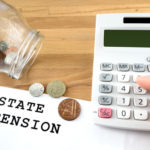
Pension Obligation Bonds Could Unravel Pension Reform Victory
Issuance of POBs will negate the recent pension reform victory by shifting current pension costs to future taxpayers and gambling the commonwealth’s fiscal health on risky arbitrage.
-
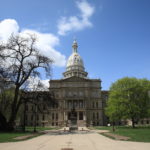
ALEC Applauds Michigan’s MPSPERS Pension Reform Efforts
This reform package preserves retirement security for existing and future employees while putting in place a more fiscally sustainable benefit for new workers. Both teachers and taxpayers win.
-
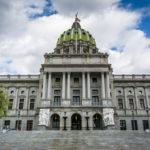
Pennsylvania Passes Bipartisan Pension Reform
By preserving retirement security for existing and future employees while putting in place a more fiscally sustainable benefit for new workers, both public employees and taxpayers win.
-

State of the State: Delaware
Governor Carney's agenda resists overall spending reductions, advocates for higher taxes and neglects other needed policy reforms (such as worker’s compensation and worker freedom). With a legislature unlikely to circumvent the lackluster agenda of the new governor, don’t expect Delaware’s economic outlook to break through the median anytime soon.
-

State of the State: Ohio
A renewed focus on reforms-rather than government micromanagement-can ensure the governor’s homestretch is one of continued economic renewal.
-

State of the State: New Hampshire
Despite the Granite State’s strengths and Sununu’s proposals, there remains work to be done. For example, the top marginal tax rate for corporations is a steep 8.2%; and although New Hampshire doesn’t have a personal income tax or sales tax, it does have the highest property tax burden in the nation. New Hampshire also ranks a lackluster 37th in the nation in terms of burdensome regulations according to the Pacific Research Institute. Furthermore, the recently released ALEC report Unaccountable and Unaffordable 2016 ranks the state’s pension funding level at 43rd nationally. Using a risk-free rate of return of 2.344 percent, New Hampshire’s state pensions are unfunded in excess of $13,000 per capita with a funded ratio of just 28 percent.
-

State of the Commonwealth: Massachusetts
Overall, however, the state’s steps towards economic competitiveness are yielding results. Governor Baker rightfully recognized this achievement, “We built a bipartisan team, worked in partnership with the legislature and looked for common ground.” Shrinking the state’s budget gap by over $1 billion without tax or fee increases is just one example.
-

State of the State: Vermont
With Vermont’s economic outlook continuing to languish at 49th (according to the American Legislative Exchange Council’s Rich States, Poor States publication), legislators may be ready to take the governor’s charge to heart: “We must act now, and begin our ascent.”
-
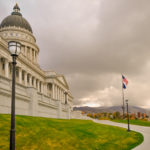
State of the State: Utah
The governor cautioned against “altering our tax policies in any way that could damage our robust economic engine.” He also advised that the “best way to ensure ongoing growth of education funding is to continue to grow our economy. Failure to take into account how tax rates affect business investment won’t help us make good policy decisions.” Indeed, the relatively low top marginal personal and corporate income tax rates (18th and 11th lowest, respectively) are partly responsible for Utah holding the top economic outlook for 10 consecutive years.
-

State of the State: Michigan
Fortunately, the governor recognizes that the government can best enable growth by removing artificial obstacles to entrepreneurs: “Over the last few years we dumped the dumbest tax in America, we cut needless regulations, we started paying down our long-term debt, we started saving for the future, we laid the groundwork for success we have today so our businesses could create jobs. We create the environment for job creation, we don’t create those jobs.”
-
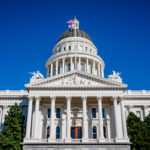
State of the State: California
The governor is right: we cannot “construct some alternate universe of non-facts that we find more pleasing.” California’s economic outlook currently ranks 46th nationally, according to Rich States, Poor States. Ignoring the impending fiscal collapse due to unfunded pension liabilities, failing to reduce the onerous tax burden, and pretending that a state carbon emissions crackdown will alter global climate only will force others to flee Governor Brown’s vision of the future.
-

State of the State: Kentucky
On a very bright note, Bevin signed legislation into law earlier this year that officially made Kentucky a right-to-work state, an important step in attracting business and expanding freedom of choice for workers on the decision regarding unionization. A continuation of this spirit of reform bodes well for the state’s future.
-
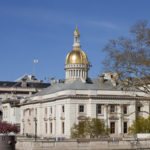
State of the State: New Jersey
The governor praised legislators for reducing the state sales tax and increasing the exclusions for the state’s estate tax; but he failed to mention the tax cut savings are almost entirely offset by the enormous 23-cent per gallon increase in the gas tax. This year’s sales tax reduction of 0.125 percent will save consumers a whopping $1.25 on a $1,000 purchase; meanwhile, the gas tax hike will cost twice this much on a single 11 gallon fill-up.
-

State of the State: Pennsylvania
Enacting common sense budgetary reforms, eliminating some cronyism, and blocking attempts to increase taxes yet further are commendable. But this will not reverse Pennsylvania’s economic malaise. Accomplishing this will require bold reduction in twin burdens of bureaucracy and tax burden.
-

State of the State: Maine
Under Governor LePage’s leadership, Maine’s economic outlook has improved from 48th in 2011 to 38th in 2016. But the tax hike and minimum wage increase threaten to roll back all of the recent progress. The governor recognizes this economic peril. His economic agenda address the problems created by the twin referendums from this fall. The outcome depends on whether or not state legislators heed his warnings.
-

State of the State: Hawaii
One of the highest personal income tax rates in the nation and the highest sales tax burden in the nation, and forced unionization all contribute to Hawaii’s 42nd place economic outlook ranking according to ALEC’s annual Rich States, Poor States publication.
-

Carbon Tax Straight Talk
Shultz and Baker label a massive tax increase and economic meddling by the federal government as “embodying the conservative principles of free markets and limited government” but this carbon tax will needlessly further distort energy markets, harm consumers, expand government bureaucracy, and have minimal (if any) effect on global climate change. For these reasons, ALEC remains steadfastly opposed to “all Federal and state efforts to establish a carbon tax on fuels for electricity and transportation.”
-

State of the State: Montana
With unemployment almost as low as it has ever been in Montana at 4 percent and household incomes on the rise, Governor Bullock should consider allowing this growth in income to drive increases in the state’s revenue instead of increasing the tax burden on Montanans. Given that there are “over 6,500 listed job openings” throughout the state that businesses are struggling to fill, Montana’s employers cannot afford tax hikes.
-

State of the State: Oklahoma
Oklahoma’s economic outlook remains bright, despite the recent localized recession as the oil boom crashed to a halt. Rather than enacting these permanent tax increases, a continuation of temporary budget constraints more adequately will preserve the Sooner State’s economic competitiveness.
-
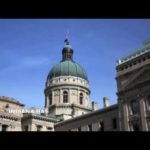
State of the State: Indiana
Governor Holcomb should continue the legacy of his predecessors by ensuring a phase-in of the tax cuts, expanding educational choice, and minimizing intrusive regulations. But attempting to short-circuit organic jobs growth by redistributing tax dollars from the state’s venture capital slush fund strays from good government principles. Doling out favors to politically-connected businesses and attempting to centrally direct sector growth is not reflective of free enterprise. Indiana is well-positioned to benefit from previously enacted reforms. Now is the time to build on this progress rather than engage in transformative retrogression.
